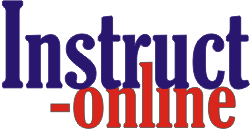
 Phone
(319) 626-2302
Phone
(319) 626-2302
Catalog Number : ncd1159
Title : Joint Commission Medication Management Standards
Speaker : Sue Dill
Webplay Recording Date : 4-23-2014
Webplay Price : $ 125 for two weeks viewing
Webinar Overview:
Medication errors are the number one cause of medical errors in hospitals. The Joint Commission medication management standards were drafted with this in mind. This webinar will cover the 2014 chapter of the Joint Commission’s 20 standards in the medication management chapter. The TJC focus is now on medication safety and reduction of errors. HHS has made one of their core areas of focus on the Partnership for Patients Program and they have a goal to reduce ADEs by 50% by 2013. TC made changes to align with the CMS hospital CoPs.
Target Audience:
This program is for anyone involved in the medication process especially pharmacists, physicians, nurses, risk managers, hospital attorneys, compliance officers, patient safety officer, medication safety officer, department directors, Joint Commission coordinators and quality and performance improvement staff, chief nursing officer, chief operating officer, chief medical officer, policy and procedure committee members, compliance officers, P&T committee members, case managers, nurse educators, nurse managers, medication safety team, pharmacy techs, patient safety officer, risk managers, and others who participate in the medication process should attend.
Webinar Objectives:
- Recall that The Joint Commission made changes to the medication management standards to reflect changes in the CMS CoPs
- Recall that The Joint Commission has a broad definition of what constitutes a medication
- Describe The Joint Commission and the revised CMS hospital requirements for self-administered medications
- Discuss that your facility needs to have a list of high risk medications and recommendations for this in your hospital policy
-
Recall that there are a number of medication management standards that are problematic for hospitals
A few of the topics to be discussed:
- TJC MEDICATION MANAGEMENT STANDARDS
- Definition of medication
- FAQs on medication management
- Survey process
- Sample medication
- Overview of medication management standards
- Medication management tracer
- Changes
- To align with CMS CoPs
- Reporting of medication errors
- Hospitals that elect primary care home option
- Standing orders, order sets, protocols, and CMS
- Planning MM.01.01.01, MM.01.02.01, MM.01.01.03
- Planning the MM process
- Policy required
- High alert medication
- Look-alike/sound-alike medications
- Selection and Procurement MM.02.01.01
- Revision June 7, 2013
- Criteria to select medications
- How to select medications-formulary
- Monitor response to first medication
- Process to approve drug not on list
- Shortages of medications and process
- Nursing need for information on how to monitor the drug
- Annual review of the list
- Written substitutes process Storage-MM.03.01.01, MM.03.01.03, MM.03.01.05
- Storage of medications
- Storage of controlled substances
- Inspection of storage areas
- Policy on control of medication and accounting
- Emergency medications
- Expired or contaminated medications
- Medication brought from home
- Unit dose or most readily available form
- Crash cart standard
- Restocking crash carts
- Availability of emergency medicines
- Rule of 6 not allowed
- Concentrated electrolytes
- Ordering and Transcribing MM.04.01.01
- Policy requirements and 2013 changes
- Minimize verbal orders
- Weight based dosing for pediatric patients
- Flu and Pneumovax orders
- Ordering only medications needed to treat patients
- Documented diagnosis for each medication ordered
- Medication orders are written clearly
- What must be in policy on ordering and transcribing
- What actions to take if orders are illegible
- PRN orders, hold orders
- No resume preop orders or home meds
- Titration orders and taper orders
- Range orders
- Verbal orders
- Preparing and Dispensing- MM.05.01.01, MM.05.01.07, MM.05.01.09, MM.05.01.11, MM.05.01.13, MM.05.01.17, MM.05.01.19 (MM.05.01.15 N/A to hospitals)
- Pharmacist first review of drug order
- 2013 change
- Night cabinet standard
- What must be reviewed by pharmacist
- Safe preparation of medications
- Automated dispensing units
- What to do when pharmacy is closed
- Medication errors
- Separate area for nurses to prepare medications
- Concerns must be addressed by prescriber
- Medication preparation requirements
- Laminar airflow standards and USP requirements
- Medication labeling (also NPSG)
- Dispensing requirements
- Drug recalls
- Returning meds to the pharmacy
- Administering- MM.06.01.01, MM.06.01.03, MM.06.01.05
- Safely administering meds
- CMS new standards June 7, 2013
- Policy requirements for administration
- Who can administer medications, blood, chemo
- What to do if adverse drug reaction
- Visually inspecting the medication
- What a nurse must do if giving new medication
- How to document process when nurse gives new med
- Self administered meds
- Investigational drugs
- Monitoring MM.07.01.01, MM.07.01.03
- 2013 change on reporting medication errors
- Monitoring side effects of medications
- Monitor patient's response to medications
- Adverse drug events/medication errors
- Evaluation- MM.08.01.01
- Evaluation of system
- Analyzing data
- Evaluating literature for new technologies
- Best practices
- Bar coding
- Evaluation of system for risk points
- Consider FMEA on medication process
- Additional resources provided
- TJC NATIONAL PATIENT SAFETY GOALS RELATED TO MEDICATION MANAGEMENT STANDARDS
- Medication reconciliation
- Anticoagulants
- Labeling of medications
Contact Hours:
Nursing participants: Instruct-online has approved this program for 1.8 contact hours, Iowa Board of Nursing Approved Provider Number 339.
All other participants: Must attend the entire Webinar and complete a Webinar critique to receive a 1.5 Hour Attendance Certificate for each program.
Refund Policy:
Full tuition is refunded immediately on request if the participant has not been sent the program materials and instructions. Once the instructions (including access codes) have been sent, a full refund will be issued only after the program runs and it is verified that the participant did not access the program
.